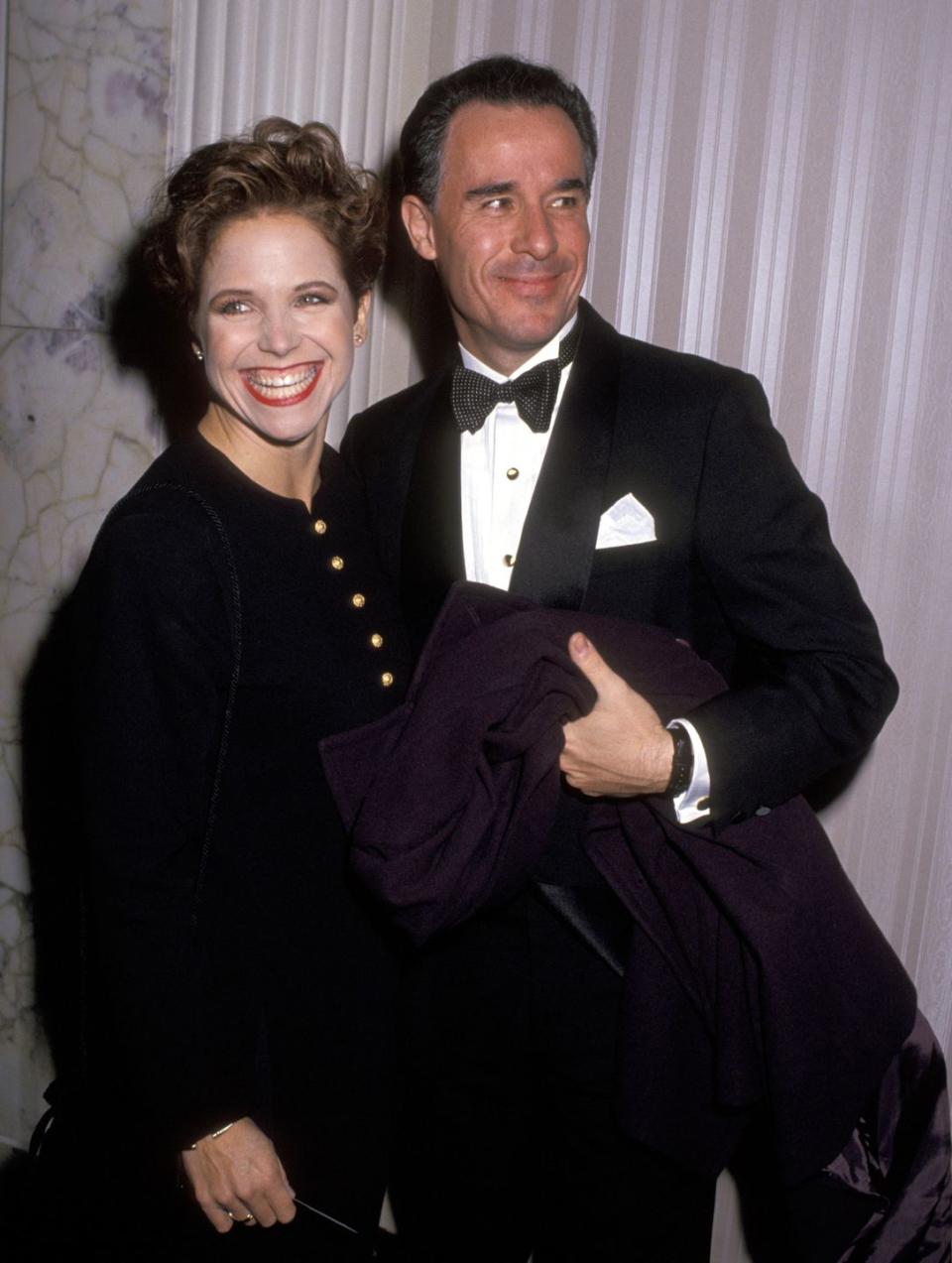Katie Couric Opens Up About Losing Her First Husband to Stage 4 Colon Cancer

- Oops!Something went wrong.Please try again later.
Katie Couric opened up about losing her first husband Jay Monahan to colon cancer.
The former Today host is encouraging others to get early screenings after Monahan developed stage 4 cancer at 41.
Couric established Stand Up To Cancer, an organization that raises money and awareness for cancer research, in 2008.
March is Colorectal Cancer Awareness Month, but that’s just one reason Katie Couric is encouraging people to take advantage of early detection screenings. In a new interview with Today, the journalist and founder of Katie Couric Media said she began advocating for screenings after her first husband Jay Monahan passed away from colon cancer in 1998.
“The bottom line is, early screening saves lives. Early detection saves lives,” Couric said. Monohan was 41 when he developed stage 4 colon cancer and passed away just one year later. Couric previously told HealthDay that, after being doubled over with pain in his abdomen, Monohan learned his colon was “completely blocked” by a tumor.
“Jay never really had any symptoms of colon cancer, other than being tired all of the time, which we chalked up to a busy lifestyle, having young children, and his coast-to-coast trips providing legal analysis for NBC,” she said.

The America Cancer Society (ACS) says that colorectal cancer often doesn’t cause symptoms until it has grown or spread, which is why getting screened is so important. The ACS has recommended screening for those age 45 and older since 2018, and in October 2020, draft guidelines from the U.S. Preventive Services Task Force also recommended that screening starts at age 45.
“Screening wouldn’t have crossed our minds for Jay, when he was diagnosed at 41,” Couric said. “My hope is that we figure out a way to do even broader screening and that we can save even more lives, but until then, people need to pay attention.”
A study published in the BMJ found that getting a colonoscopy—an exam that uses a long, flexible tube to check for abnormalities in the colon—was associated with a 67% reduction in the risk of death for any colorectal cancer.
Colon cancer rates in adults under 50 have been rising since the mid-80s, the ACS says, and younger age groups have seen the sharpest increases. In fact, one 2017 study found that people younger than 55 are 58% more likely to be diagnosed with late-stage colorectal cancer than older people. This is “largely due to delayed follow-up of symptoms, sometimes for years, because cancer is typically not on the radar of young adults or their providers,” the authors wrote.
Couric famously underwent a colonoscopy on air during a Today show segment in 2000 when she was 43. She also got “his and hers” colonoscopies in 2019 with her husband John Molner, where she revealed on Instagram that her doctors removed two polyps during the procedure. (A polyp is a growth in the colon that can sometimes become cancerous, the ACS says.)
“These have the potential to develop into cancer and that’s why screening is SO IMPORTANT!” Couric wrote in an Instagram caption. “Yeah, the prep isn’t that fun but it’s A LOT better than being diagnosed with colon cancer!”
Couric also highlighted that more research is needed to explain why Black adults are 20% more likely to get colorectal cancer and about 40% more likely to die from it than other groups.
“We need to diversify our (clinical trial) patients,” she said. “We need to study why people of color, Black people in particular, are having much higher incidents of rectal cancer. ... We are making a very concerted effort to widen our net, and to make sure that underserved populations or people who don’t have access to medical care are screened for colon cancer and that they are included in all cancer research.”
She also added that she’s “very concerned” that people may be missing screenings due to the pandemic. “We really have to make up for lost time,” Couric said. “As we come out of this pandemic, you need to talk to your doctor, you need to make an appointment.”
Although Couric lost her husband two decades ago, she continues to honor him by spreading awareness about colon cancer. “You live on in your girls and in our hearts,” she wrote in a January 2020 Instagram post. “We love you and miss you every day.”
Go here to join Prevention Premium (our best value, all-access plan), subscribe to the magazine, or get digital-only access.
You Might Also Like

